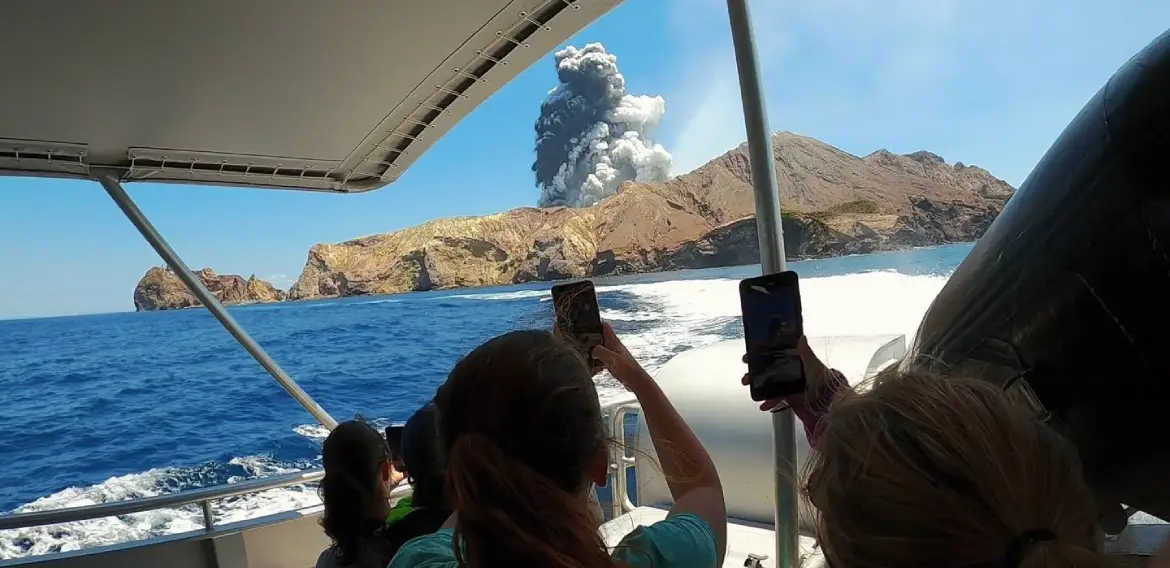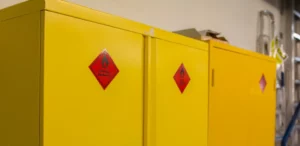Article adapted from the New Zealand Herald and other sources.
Why Every PCBU Must Prioritise Health and Safety.
Let’s look back at the horrifying events from Monday, 9th December 2019 when the Whakaari White Island erupted, taking the lives of twenty two people and leaving a further twenty five seriously injured.
After three and a half years following the volcanic eruption, the legal proceedings by WorkSafe against the proprietors of Whakaari Island are now in progress. The primary defendants in this case are the trio of Buttle brothers – Andrew, James, and Peter. Whakaari Island is under the ownership and administration of Whakaari Trustee and Whakaari Management, with the Buttle brothers serving as co-directors and shareholders in both corporate entities. The charges brought against Andrew, James, and Peter Buttle are grounded in the Health and Safety at Work Act 2015 (HSWA), focusing on their roles as directors within these companies.
Specifically, the allegations against the Buttle brothers revolve around their alleged failure to seek expert guidance regarding how their enterprise, Whakaari Management, could implement safety measures for the guided tours conducted on Whakaari Island. As directors, they are being held accountable for not ensuring proper safety protocols were in place. This legal pursuit serves as a pertinent reminder to all directors of their significant responsibilities in upholding health and safety standards. It underscores the potential consequences that may arise when these duties are disregarded or neglected.
Subpart 2 – Duties of PCBUs under the Health and Safety At Work Act 2015
Under the regulations, a PCBU has the primary duty of care and must ensure, so far as is reasonably practicable, that the health and safety of other persons is not put at risk from work carried out as part of the conduct of the business or undertaking. Where due diligence is required, this extends to covering all obligations including, but not limited to understanding health and safety matters within the business, ensuring the appropriate resources are made available to employees and those on site, and even further ensuring that processes are in place to comply with their duties and obligations under HSWA. You cannot contract out liability.
The most serious offence in relation to a breach of directors’ duties is the offence of reckless conduct in relation to that due diligence duty and could lead to a term of imprisonment of up to five years, a fine not exceeding $600,000 or both.
Charges against the proprietors of Whakaari Island
In the ongoing court hearing, the district court noted “there can be a public interest, and usually is, in holding directors to account where they may be liable”. It was found that GNS Science had given a warning to the proprietors related to volcanic activity and it was stressed that they should seek expert advice to ensure the safety and wellbeing of tour operators and guests. The PCBU did not get that expert advice and as such, WorkSafe’s case is that despite some level of steps were taken, not enough was done to meet all the obligations under HSWA. Rather than carry out due diligence themselves, “they saw it as satisfactory to say to the tour operators that’s your job”.
WorkSafe has said that “we have a case where they don’t do the first and fundamental thing for directors of getting the risk assessment from those who have the expertise, so they don’t get to the starting line”.
As this is an ongoing case, it will be interesting to learn what the proprietor’s defence will be.
Our Comments
In our experience, we deal with a lot of great PCBUs who are proactive in their approach to health and safety and worker protection. Most go so far as to exceed expectations, however, there still remains a core group of business owners who are reluctant to properly engage in the health and safety process, taking a minimal tick-box approach to health and safety.
Tragedies do not knock before entering and can occur at any given moment. Especially so when you have hazardous substances on site. The Hazardous Substances Regulations are considered one of New Zealand’s most complicated pieces of legislation. As such, PCBUs often put it in the “too hard basket” which continues to reflect in the high levels of cancer rates and work-related incidents in New Zealand.
Eight years after the Health and Safety at Work Act was passed, and 6 years after the Hazardous Substances Regulations was enacted, there remains a lot of work to be done in educating PCBUs on their legal and moral requirements to take this matter seriously.

